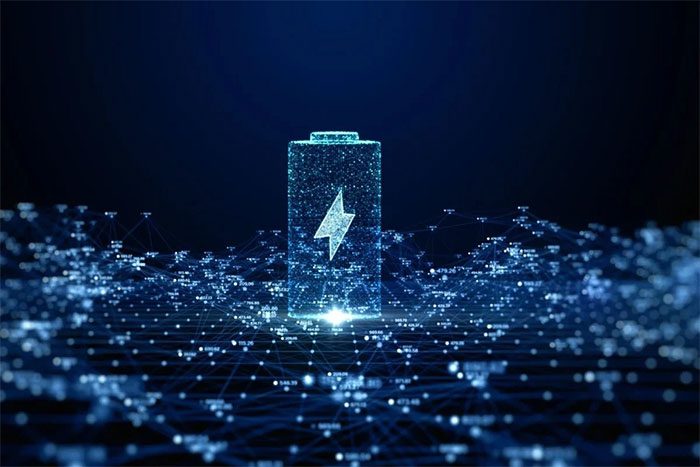The new water battery technology is expected to transform the future electric vehicle industry.
According to sources cited by the South China Morning Post (SCMP), a group of Chinese scientists has developed a new battery technology called “water battery”, officially known as metal-ion water battery. This type of battery is notable for having an energy density nearly double that of traditional lithium batteries, indicating its substantial potential for future technologies, such as electric vehicles.
As reported in a study published in the journal Nature Energy on April 23, iodine and bromine-based water batteries have an energy density of 1200 watt-hours per liter (Wh/L), compared to 700 Wh/L for lithium batteries.

Water batteries are also safer than lithium batteries.
The findings were published by a research team from the Chinese Academy of Sciences (CAS). They stated that their water battery is also safer than lithium batteries that do not contain water – a type of battery that is “very flammable.”
The researchers assessed that the new battery is stable and shows promising potential for the development of rechargeable water batteries that are safe and have high energy density for the next generation.
Li Xianfeng, a professor at the Dalian Institute of Chemical Physics CAS and a corresponding author of the study, mentioned that their discovery “could expand the applications of water batteries in the field of electric batteries.”
Currently, lithium batteries are the global standard due to their high energy density. The research indicates that traditional lithium batteries contain a non-aqueous electrolyte – a component that allows the battery to charge and discharge but is also flammable.
Water batteries are composed of aqueous electrolytes, thus eliminating safety risks.
However, the research team noted that water batteries typically have energy densities much lower than non-aqueous batteries, often below 200 Wh/L.
The researchers stated that the lower energy density at small scales makes water batteries “suitable only for large-scale fixed energy storage.”
To address this issue, the research team developed bromine and iodine-based electrolytes that could overcome these energy density challenges.
When assembled into a battery with an anode made from cadmium, they found that the battery “could be continuously used for over 300 charge and discharge cycles” with an energy efficiency of 78%.
When the researchers tested their electrolyte with an anode made from vanadium, they observed that the battery’s lifespan could extend up to 1,000 cycles, “demonstrating significant stability.” The researchers noted that the energy density of their battery even “exceeds the energy density of some solid electrode materials” and could be cost-competitive with traditional lithium batteries.
The article concludes: “Our research demonstrates the feasibility and safety of high-energy-density water batteries, which offer potential for development and energy storage at grid scale and even for electric vehicles.”

















































